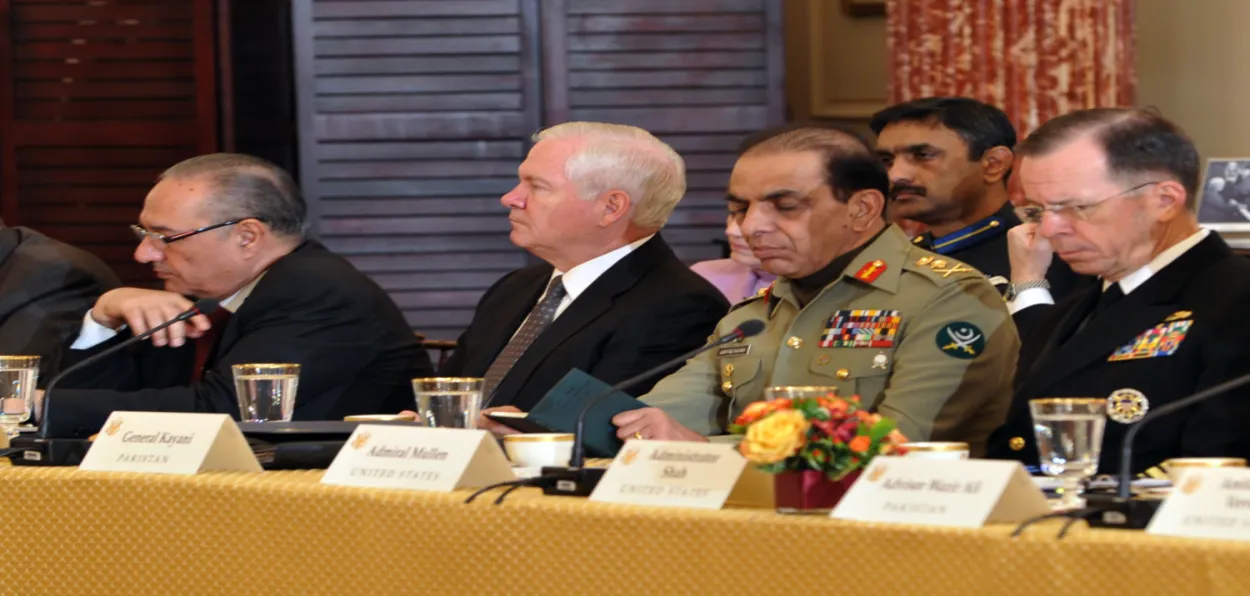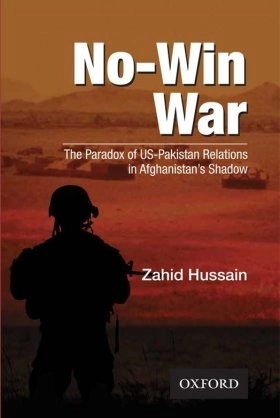
Saleem Rashid Shah
Renowned Pakistani journalist Zahid Hussain's book No Win War: The Paradox of US-Pakistan Relations in Afghanistan’s Shadow starts with an interesting and consequential meeting between two intelligence chiefs - General Mahmud Ahmad, the ISI chief in 2001, and George Tenet, the CIA Director at their Headquarters in Langley. Mahmud happened to be in Washington on the fateful day of 11th September 2001 and before that in his meetings with US Officials, he would vigorously defend his country’s relations with the radical Islamic regime in Afghanistan. He assured CIA officials that Mullah Mohammad Omar was a pious man and not a man of violence.
Book Review
9/11 had put the spymaster in a tight spot and the Bush administration delivered through him the message they badly wanted to. The Deputy Secretary of State Richard Armitage snapped at General Mahmud when the latter tried to explain to him the history of US-Pakistan relations. ‘General, I know history very well. We are talking about the future and for you, and for us, history starts today!’
This is the point of departure in the book. The next seven chapters deal with the tenuous relationship between the two countries. Pakistan, according to General Mahmud, had no option but to plunge with the US in its war on terror. The greatest fear that led Pakistan to take this controversial decision was the fear of an American-Indian alliance that could eventually lead to Pakistan being declared a terrorist state.
The striking anecdote that Zahid Hussain mentions in the book is that of a meeting between the ISI Chief General Mahmud and Mullah Omar in Kandahar. The US was yet to invade Afghanistan and they wanted Musharraf to convince Mullah Omar to hand over Osama Bin Laden to them. It was in this connection that Musharraf delegated his ISI Chief to talk to Mullah Omar in Kandahar.

Cover of Zahid Hussain's book
It is said that upon reaching there the ISI chief told Mullah Omar to never fall into the trap of the US. Later on, some officials even suggested that the delegation had told Mullah Omar to remain steadfast and not succumb to US pressure. Musharaf ended up removing Mahmud as the ISI chief and his entire anti-west Generals in the cabinet. The top brass of the army now consisted of the officers who would support his policy shift
The US started carpet bombing of Afghanistan and drove away the Taliban from the seat of power. The Taliban regime had withdrawn from Afghanistan but the movement was not defeated. The US would go on to fight the longest unwinnable war in Afghanistan.
While there was a strong convergence of interest that had bound the US and Pakistan in a strategic relationship against the Soviets in the 1980s, the alliance that emerged after 9/11 was more out of expediency. It was often described as a ‘shotgun marriage’.
The two nations over the years would be embroiled in a conflict that would prove devastating for both countries.
Zahid Hussain goes on to demonstrate the cloak-and-dagger game that was being played between the CIA and ISI in this period. CIA even went on to the extent of describing ISI as a criminal organization with its covert relations with the Taliban and more so with the dangerous Haqqani network. Ironically the Afghan war may have been the basic cause of tension between Pakistan and the US, it had also been a reason for the two estranged allies to stay together.

Pakistani Journalist and author Zahid Hussain
The book drew to an end in 2020 when the relations had turned full circle with all the players on the negotiating table.
The glittering ballroom at the Hotel Sheraton in Doha surprised the entire world. The US did not seem to have any problem negotiating across the table with the very insurgent leaders who they had once declared as terrorists. It was a complete policy turnaround for America since 9/11.
The author vehemently shows the fractures in the US-Pakistan relationship and says that both countries followed their divergent agendas in Afghanistan. The two supposed allies could not figure out whether they were friends or enemies despite a two-decade-long partnership.
The book explores the implications for Afghanistan in the so-called war on terror while revealing US-Pakistan’s foreign policy initiatives. The book tells the story of how Pakistan’s decision to ally itself with the US pushed it into a war with itself.
ALSO READ: British-Arab influencer Amjad Taha sees hope in Kashmir
Zahid Hussain goes beyond the headlines and explores little-known facts by investigating the nuances of a relationship that could have unprecedented consequences for the future of Afghanistan.
No Win War: The Paradox of US-Pakistan Relations in Afghanistan’s shadow by Zahid Hussain: Oxford University Press, 2021
